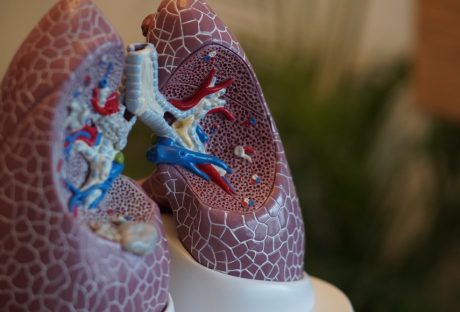We are all aware of having a healthy mind and body gives us lots of benefits. And in order to achieve that, we must have and maintain a healthy lifestyle as well, which includes doing regular exercises and eating the right kind and amount of food. These things can also guarantee us a stronger and longer life. Vitamins and minerals are essential ingredients for all women over the age of 40.
However, as we age, manifestations of physical changes occur, which has an effect also on other aspects of our lives. The cliché “life begins at 40” is indeed true, because, at this age, women’s body is not the same as they used to have during their 20’s.
Various fluctuations usually happen at this age, like deterioration of the muscles causing to have bone-related conditions like osteoporosis. With the onset of menopause, unusual things are also experienced like hot flashes, loss of appetite, and sleeping disturbances.
Moreover, this is also the time where higher risks of diseases like cancer and heart diseases, hypertension and diabetes can happen because the immune system starts to weaken as well due to aging.
In order to lessen these risks, aside from maintaining an established healthy lifestyle, consuming vitamin and mineral supplements are needed to support the nutrients needed by the body to make it healthy despite aging.
While these supplements cannot fully guarantee the strength and the risks of not getting sick, knowing the vitamins and minerals that should be prioritized for the health is very crucial. Yes, Wellness Vitamins Canada the most essential vitamins and minerals women ages 40 and above must take to become healthier and stronger despite the age.
The Top 6 Vitamins And Minerals All Women Over 40 Should Take:
Vitamins and minerals are essential for your body to survive in hostile condition. You cannot make things happen in a day.
1. Vitamin B12
As the body ages, the body is getting slower when it comes to absorbing this vitamin because the stomach gets depleted. And while this vitamin is needed for the proper functioning of the brain and blood, consuming 2.4 mg recommended daily allowance of vitamin B12 supplement is vital for the body at this age. Moreover, animal and meat products like chicken, milk, fish, and eggs are excellent sources of this vitamin.
One thing good about this vitamin is that it is water-soluble, so it can easily release the unneeded amount through urine.
2. Calcium:
During the younger years, the bones get most of the calcium it gets on from the foods and drinks we consume. And if other parts of the body are not getting adequate amounts of this mineral, it steals the calcium from the bones, which weakens it. This is what makes calcium another essential mineral, especially for aging women. Aside from the continuous bone health, calcium is needed by the body for other purposes- muscle contraction, proper functioning of the heart and nerves, and various biochemical reactions.
Mostly, women at 40-50 years old need 1,000mg of calcium every day, while women ages 50 and up need 1,500mg. Aside from supplements, calcium can be attained by eating dairy products, tofu, broccoli, spinach, and sardines.
3. Vitamin D
This is very important especially by the time a woman reaches 40 because it helps the body to better manage some of the body changes that occur at that time. It is also important for the better absorption of calcium.
The insufficient dose of Vitamin D in the body is connected to the higher chances of having heart diseases, diabetes and multiple sclerosis and breast and colorectal cancers.
Enough exposure to sunlight is the best way to get Vitamin D, plus consuming foods like fish, fortified dairy products, grains, and cereals.
As for vitamin supplements, the expert recommends a D3, a vitamin D supplement that contains almost like vitamin D in the sun). The recommended daily intake of this vitamin should be from 600 IU for 40 to 50 years old, while 800 IU for ages 50 and above. Furthermore, a woman can take a maximum limit of 4000IU of this vitamin per day.
4. Magnesium:
Aside from Vitamin D, magnesium also helps the body to absorb the calcium better. In addition, this aids in regulating blood pressure preventing the risk of having hypertension, which women at ’40s are very prone to. It also aids in controlling the glucose in the blood and also has a role in the proper functioning of nerves and heart.
A woman must have a 320mg daily intake of magnesium, which can be attained from dark green, leafy vegetables, beans, nuts, soy, and avocados. Too much magnesium can cause side effects like diarrhea, nausea, and cramping, so a test must be done to ensure that the body has an adequate amount of magnesium before taking any supplements.
5. Potassium:
Foods like bananas, sweet potatoes, chards, beans, and lentils are an excellent source of potassium, a mineral that helps the body to regulate the blood pressure.
A woman aged 40 only needs 2mg of daily potassium intake. Too much potassium can cause damage to the heart and gastrointestinal tract and cardiac arrhythmias. That is why the careful intake of this mineral is very essential.
6. Omega 3
This may not be a vitamin, but this fatty acid has its own contribution to a woman’s health. According to research, Omega 3 helps in lowering blood pressure and the bad cholesterol minimizing the chances of getting heart disease and also aids in keeping the memory sharp.
The recommended daily intake of Omega 3 depends on your present health. For a healthy person, 500mg is needed, 800 mg to 1000mg for those with heart disease, and 1200mg for those with high triglyceride levels.
Read Also:




























